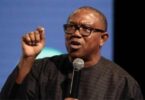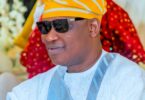Renowned professor of African history, Toyin Falola, and other eminent scholars have extended the argument for decolonial studies, insisting that it is crucial globally to restore human dignity.
The erudite scholar chaired a penal of scholars at the last edition of the Toyin Falola Interview Series with the theme on decolonization and decoloniality. The panelists were Professor Nelson Maldonado-Torres, a professor of Philosophy at the University of Connecticut, he is a former president of the Caribbean Philosophical Association; Professor Walter D. Mignolo, a distinguished emeritus professor of Romance Studies and Professor of Literature, and former director for the Centre for Global Studies and the Humanities at Duke University; Professor Shose Kessi, Dean of the Faculty of the Humanities at the University of Cape Town and Professor in the Department of Psychology; Professor Sabelo J. Ndlovu-Gatsheni, professor and chair of Epistemologies of the Global South with emphasis on Africa, and Vice-Dean on Research in the Africa Multiple Cluster of Excellence at the University of Bayreuth in Germany; Professor Julia Suarez-Krabbe, an associate professor in Cultural Encounters at the Department of Communication and Arts, Roskilde University, Denmark; and Oyeronke Oyewumi, a full professor of Sociology with affiliations to Gender and African Studies at Stony Brook University.
Professor Julia noted that “We cannot have any hope of achieving decolonization without European input because decolonization is a global project. Colonialism is a structure of oppression. We must all be in this together if we are to achieve human dignity everywhere. The kind of decolonization that is taking place in Europe is the realization that knowledge is connected to practice, to the struggles. Knowledge is not something that an individual has or can get. Knowledge is always something we do together.”
Similarly, Professor Mignolo stated that “Colonisation is the consequence of modernization. There is no modernization without colonization. There is no modernity without coloniality. Modernity is not a historical period; it is a historical period for those who invented the concept of modernity. The concept of modernity foregrounds a series of narratives: theological, secular, philosophical. In order to constitute itself as modernity, they had to push out everything that does not fit the constitution of modernity. That is coloniality. Coloniality is the logic of oppression, dispossession, exploitation that the rhetoric of modernity hides. Decoloniality emerged as a result of conflict which refused the vision of modernity. Decoloniality is that consciousness that coloniality is common to all western colonialists. Decoloniality is a response to that narrative or vision of modernity.”
In her interrogation of the various dynamics of colonial structures, Professor Kessi told the audience that: “These colonial frameworks are based on three key assumptions. The first and common underlying assumption and rationale for international development work is that the world is divided into developed and less developed nations, and that less developed are catching up with more developed nations, with the global South remaining peripheral and dependant on the expertise of development experts of institutions in the global North. The second assumption is that levels of poverty are used as measures of organising principles that determine levels of development. The third assumption which is linked to the first two is that as a result, colonized people are seen as the problem. People in the global South are portrayed as helpless, passive victims, afflicted by disease, destitution, violence, corruption and lacking knowledge and capability to get ourselves out of this mess. This message is very common, not only in discourses of international aid, charitable organizations and many academic projects but it is propagated by mainstream media. So in a way it has become commonsense knowledge. What these messages do is that they trivialize very complex issues and make power relations invisible. We are led to believe, for example, that the problem of the global South is money and food rather than political, structural and cultural oppression and exploitation. Against this background, my scholarship over the past 15 years has been to research how academia, on the one hand, has been complicit in upholding these colonial ideas about the global North-South divide, and on the other hand, what academia can do to critically engage with the legacies and the afterlife of slavery, colonization and apartheid. As a psychologist, I have written about how psychologists play a key role in the field of race science, also referred to as scientific racism, full claim to black intelligence, brain size, morality, criminality, sexuality, always depicting black and African populations as less than human and always in need of civilization.
“These attempts by psychologists and other scientists have served to legitimize and justify the continued inferiorization and control of African people or black people and the separate hierarchical treatment of race groups. They also provide a smokescreen that enables the development industry to operate under this idea of a paternalistic benevolent enterprise helping others, thereby concealing other motives of political, economic and cultural subjugations. This history of race science cannot be separated from the anglo-centric and paternal history of psychology from the 19th century which is based on biological determinisms that conceive of sex differences as shaping sensory motions and intellectual abilities and followed by Freudian theories of personality differences between men and women to justify women subordinate social positions. These understandings led to a multitude of injurious policies notably population-control policies, forced sterilization laws and many others. I would argue contemporary and widespread forms of gender-based violence. This brief decolonial feminist reading of psychology and the development industry can shed light on how colonialism permeates everyday life and importantly everyday experiences of violence in the workplace, in schools, in families, in communities are manifestations of this global colonial relations of power.”
On his part, Professor Sabelo informed the gathering that the relics of colonialism were yet to be fully purged out of some sections of Africa. “A lot of people who read my work assume that I come from Latin America; I come from Zimbabwe. A lot of people don’t understand the journey we have travelled which makes us meet in terms of minds with the Latin American comrades. I am from Zimbabwe and I was born at a time when the region of Southern Africa was engulfed in armed liberation struggles and Zimbabwe prosecuted 15 years of armed liberation struggle. My consciousness was influenced by this epic struggle against colonialism. Southern America is the place where I think from, where I am epistemically located. It was the last part of the continent to undergo ‘decolonisation’, if you like, with Angola 1975 and Zimbabwe 1980, Namibia 1990, and South Africa 1994. So in the Southern African region, colonialism and apartheid are not just a past in the true sense of the word, they are actually a living reality which we are still trying to transcend. At the university, I studied both history and economic history. In the economic history, the dominant approach then was what we called ‘The third world dependency school’. Outside the university, there was also another very influential school which was pushed by the southern African political economic series which pushed the issue of political economy, class analysis and pan-Africanism,” he said.
Professor Nelson, however, called for concerted efforts in the drive towards a truly decolonized world.
The session had very prominent academics, culture enthusiasts and university administrators in attendance. They included: Professor Richard Joseph, Luqman Muraina, Christopher Esike, T. Oloruntoba Oju, Flipa Pontes, Debbie Yeboah, Mary arez-Krabbe and Professor Oyeronke Oyewumi led by Professor Toyin Falola as moderator. Interview series has an audience averaging two million. Kinyanjui, Otive Igbuzor, Ghirmai Negash, Femi Omere, Rowland Caesar Apentik, Emina Hanik, Syed Muhammad Omar, Berta Vishnivert, Utitofon Inyang, Eugenia Anderson, Ebun Clark, Kathryn Toure, and Aghogho Akpome.







